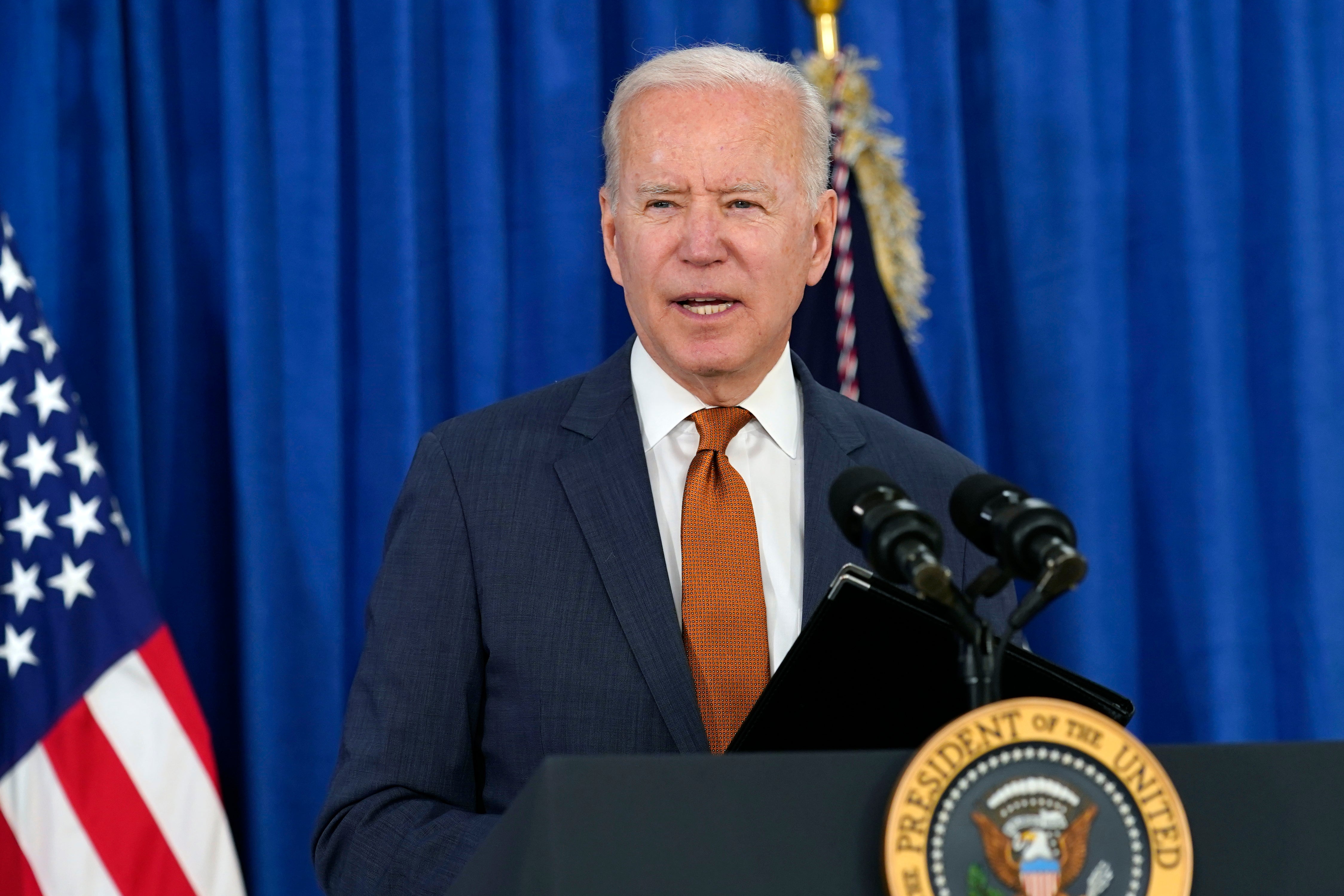Joe Biden is not the answer to the trade fears we had with Donald Trump
There is much to welcome about the current president’s approach to trade, but America’s priorities haven’t changed – agriculture and healthcare remain its two main targets


Two years ago today, Donald Trump completed his long-planned state visit to the UK.
Blimps were flown. Signs were waved. Royal etiquette was breached. And for one last time, Theresa May was forced to suffer at the president’s side, as he told their joint press conference how he would have handled the Brexit negotiations, and boasted about his approval ratings back home.
But, most damaging of all, at a time when the Tory government was desperate to build up public support for a US trade deal, Trump could not resist telling the media that the “phenomenal”, “tremendous”, and “very comprehensive trade deal” he had in mind would have “everything on the table ... the NHS and everything else”.
Subsequent polling by the Department for Trade showed support for a US deal in decline. Asked what the government’s top priorities in negotiating a deal should be, positive benefits like increasing exports to the US were rated well below the need to protect the UK’s public services.
This captured the dilemma at the heart of our post-Brexit trade policy. We all want to strike new trade deals to help our economic recovery, open up new markets for UK firms, create jobs at home, and raise standards internationally. But we have to balance those opportunities against the less welcome objectives our potential trade partners have when they size up a deal with Britain.
If the NHS threat severely damaged the chances of an agreement with Donald Trump, rising concern about the impact on British food and farming standards was the final nail in the coffin.
Public and parliamentary pressure forced the government to pledge that they would not allow those standards to be undermined by cheap US imports, and at one stroke, Trump’s phenomenal, comprehensive trade deal was no longer on the table, full stop.
Next week, thank goodness, a very different president will arrive in the UK, and receive a deservedly warm reception, born of gratitude for restoring civility and integrity to the White House, rescuing his country from the abyss, and reinstating America’s global leadership on issues ranging from climate change and Covid vaccines to a minimum corporation tax.
There is much to welcome too about Joe Biden’s approach to trade.
He would offer a commitment to workers’ rights, and an enthusiasm for the job-creating possibilities of green energy and low carbon technology, which have been entirely absent from the trade deals signed by Liz Truss over the past two years.
Conversely, the president is sceptical about trade provisions allowing corporations to challenge regulations protecting workers, consumers and the environment; or enabling US internet companies to escape liability for the damage their sites permit.
However, much as we wish it to be true, if we were to think of Joe Biden as the answer to all the concerns that previously beset a UK-US trade deal, we would be deeply naive.
Indeed, when he meets Boris Johnson next week, and they speak warmly about working towards an agreement next year, it is vital to remember that none of the fundamentals have changed since Donald Trump and Theresa May were in the same position.
The US priority will remain the two largest sectors of its economy with the greatest growth potential in Britain: agriculture and healthcare.
No US president will present a trade deal with the UK to Congress without substantial and unrestricted gains in access to those sectors – especially for agriculture, especially in a mid-term elections year, and especially with key Senate races ahead in Wisconsin and North Carolina.
And consequently, no US administration is going to waste time on negotiations if the UK government tries to keep those issues off the table.
In other words, we are where we were two years ago.
Except, crucially, that the government will also next week sign a trade deal with Australia that makes all other trade deals possible, in the face of strong opposition from the National Farmers’ Union, the Labour Party, and the devolved administrations in Scotland, Wales and Northern Ireland.
All tariffs and quotas on Australian agricultural exports will be eliminated over a 15-year period, in return for which... well, no one has explained that part yet, least of all the Australian negotiators, who cannot believe the one-sided deal they have been handed.
What they may not appreciate is that – for their UK counterparts – this deal is not about Australia. It is about breaking the opposition of the British farming industry, and establishing a model for other trade deals that our farmers will henceforth be unable to block.
Zero tariffs and zero quotas will become the norm.
Meat produced using methods that are illegal in Britain – but not currently subject to import bans – will be allowed in without further restriction, whether it is beef treated with growth-promoting antibiotics, or pork produced on farms that use sow stalls.
And with that offer as standard, the world’s other agricultural export powerhouses will be queuing up to sign: New Zealand; Brazil; Canada; and, of course, the United States.
A door that was closed on Washington two years ago will suddenly be wide open again.
And skilled, experienced politician that he is, President Biden will never say that the NHS is on the table. Of course not. Just access to NHS patient data. Just the right to compete to provide all NHS services. And just a fair and competitive process for supplying NHS drugs.
These threats have not gone away, and thanks to the deal with Australia, they are greater than ever.
For the past two years, I have maintained that it would be impossible for the government to do a deal that can satisfy US demands on agriculture and healthcare, while also keeping the promises that ministers have made to the British public on farming, food and the NHS.
My view has not changed. And nor have America’s demands. That only leaves one thing.
Emily Thornberry is shadow secretary of state for International Trade and Labour MP for Islington South and Finsbury
Join our commenting forum
Join thought-provoking conversations, follow other Independent readers and see their replies
Comments
Bookmark popover
Removed from bookmarks